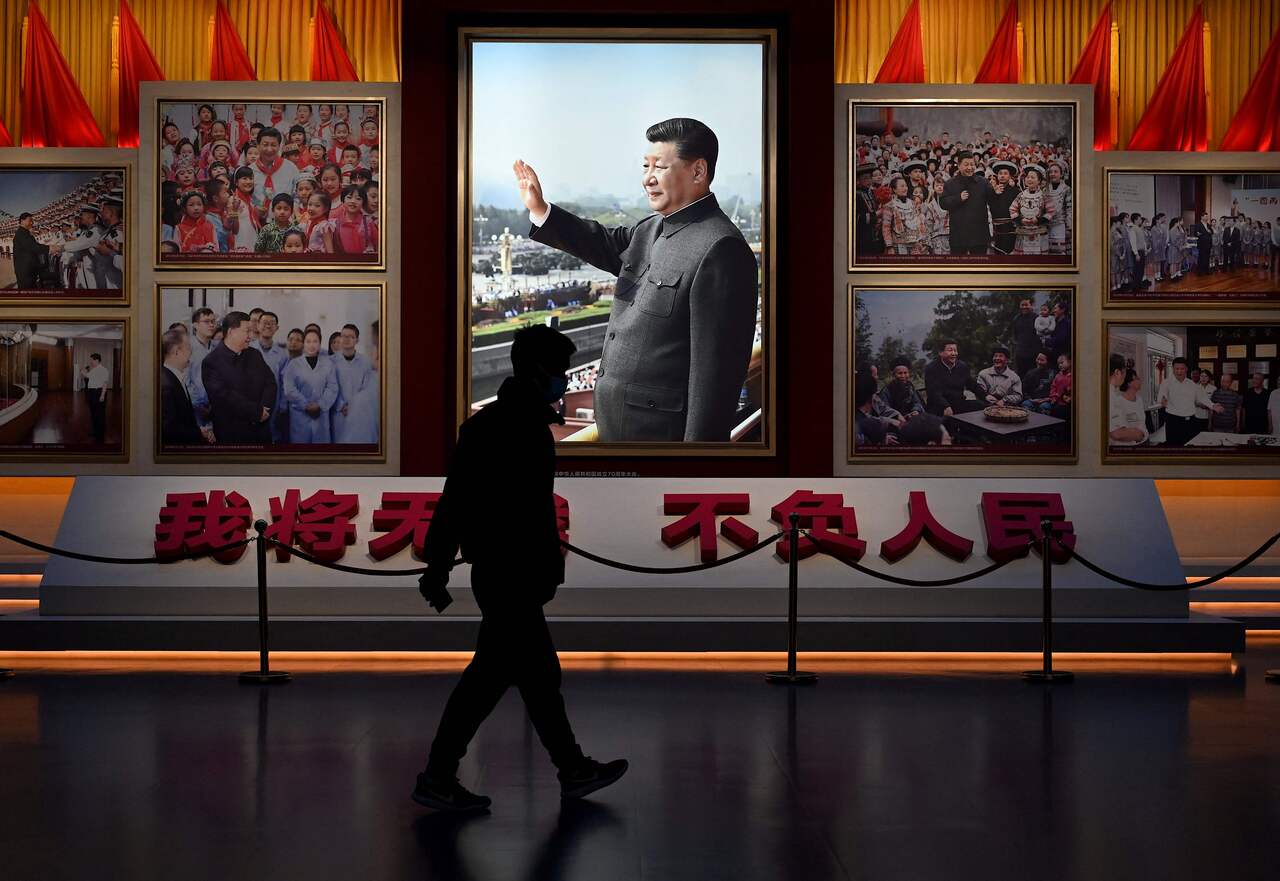Chinese President Xi’s supremacy cemented after CPC adopts landmark resolution
Sign up now: Get insights on Asia's fast-moving developments

Analysts say the resolution will help President Xi Jinping shore up his grip on power.
PHOTO: AFP
BEIJING - President Xi Jinping made history on Thursday (Nov 11) after the top leadership of the ruling Communist Party of China (CPC) adopted a historical resolution bolstering his mandate and continued grip on power.
About 350 members of the party's top decision-making body, the Central Committee, met for what is known as the sixth plenum of its current five-year term.
In a lengthy communique released by state news agency Xinhua at the end of the four-day conclave, Mr Xi's name was mentioned at least 14 times compared to Chairman Mao Zedong's seven mentions; former paramount leader Deng Xiaoping's five; and former presidents Jiang Zemin and Hu Jintao's once each.
The statement said the Communist Party should have the "correct view" of its history, adding that it should understand why it was able to succeed in the past and how it can continue to thrive in the future.
In a clear signal of President Xi's continued leadership and key role in China's future, the communique was full of praise for him, saying that he had "put forward a series of original new ideas and strategies on governance" and reiterating that his political ideology, Xi Jinping Thought, was "21st century Marxism".
It mentioned all four of Mr Xi's predecessors and outlined their contributions to the party and nation-building. But under Mr Xi, the Communist Party has strengthened its political and ideological leadership, public appeal, and boosted China's economy and military and technological advancements, said the communique.
The historical resolution, which was not released at the same time as the communique, is said to have been crafted by Mr Xi, who is using the occasion of the 100th anniversary of the founding of the Communist Party this year to put his stamp on its official historical narrative.
The resolution is likely to drum up the party's achievements, including milestones set and reached under Mr Xi, such as eradicating absolute poverty in the country and attaining the status of a "moderately prosperous nation".
It is only the third historical narrative adopted by the party since its founding in 1921. The first was mooted by Chairman Mao in 1945, four years before the founding of the People's Republic, and the second under Mr Deng in 1981.
But with Mr Xi's resolution adopted, he is seen as having surpassed Mr Deng's status and being on a par with Chairman Mao.
"I am not surprised the party has stuck to the narrative that Xi has inherited the mantle of the CPC's revolutionary leaders by making China strong, after Mao and Deng had respectively helped the Chinese stand up and grow rich. What is obvious in this communique is that Xi is setting himself up as a philosopher king," said China scholar James Char of the S. Rajaratnam School of International Studies.
"More importantly, since Xi claims he has already made such great accomplishments since coming to power, he is thus the only person capable of leading the party-state in the immediate future, especially since the country is facing such unprecedented changes in the world 'unseen in a century'."
Sovereignty issues were also discussed at the meeting, with the communique noting that Hong Kong had achieved "a major transition from chaos to governance", with the introduction of a national security law.
"The language used in the portion regarding Taiwan, however, does seem restrained and less assertive," said Mr Char, who studies Chinese domestic politics.
The statement simply reiterates Beijing's position that it "resolutely opposes the separatist acts of 'Taiwan independence'" and interference by external forces.
With the historical resolution now enshrined, Mr Xi is set to, at the minimum, take on a third term at the 20th party congress in the second half of next year when the party leadership is reshuffled.
A two-term limit on the presidency in the Constitution was removed in 2018, paving the way for Mr Xi - who came to power in 2012 - to continue to rule indefinitely.
"China's future cannot be without Xi," a party insider told The Straits Times, referring to the communique.
"His continued leadership has already been decided."
"His continued leadership has already been decided."


